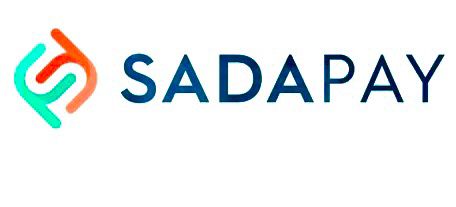Islamic studies have long been regarded as an essential part of a person’s educational journey, not only for understanding the teachings of Islam but also for shaping the moral and ethical character of individuals. In today’s fast-paced world, where ethical dilemmas and moral confusion are becoming increasingly common, Islamic education provides a steady and clear foundation for developing a strong moral compass. This article explores how Islamic studies play a significant role in enhancing moral and ethical development and the different ways these teachings are being made accessible through platforms such as Islamic courses online, Islamic tutors online, Quran courses USA, and Islamic classes online.
The Foundation of Islamic Ethics
Islamic studies delve deeply into the teachings of the Quran and the Hadith (the sayings and actions of the Prophet Muhammad). These two primary sources of guidance are rich in moral lessons and principles that shape the behavior of Muslims. The Quran emphasizes the importance of good character, kindness, honesty, and humility, while the Hadith further elaborates on how these virtues can be applied in daily life.
When individuals learn Islamic teachings, they are not just memorizing religious facts; they are being introduced to a way of life that prioritizes moral behavior. This emphasis on ethics can significantly shape the way a person interacts with the world, influencing their decisions, actions, and relationships.
For instance, the Quran stresses the importance of justice and equality. Surah Al-Baqarah (2:286) mentions, “Allah does not burden a soul beyond that it can bear.” This teaching reminds individuals to treat others fairly and justly, as we all have our challenges and limitations. Understanding this verse can encourage students to be empathetic, compassionate, and understanding in their personal and professional lives.
Developing Good Character
Islamic studies also focus heavily on developing good character traits. The Prophet Muhammad (PBUH) said, “The best of you are those who have the best manners and character.” (Sahih Bukhari). This hadith highlights the importance of character in Islam. When people engage in Islamic studies, they are taught to embody qualities like patience, perseverance, humility, generosity, and honesty.
As a result, students of Islamic studies often grow into individuals who are more conscious of their actions and their impact on others. This awareness leads to personal growth and improvement, as students learn to recognize the importance of embodying these qualities both in their private and public lives. It encourages them to treat others with respect, be truthful in their dealings, and show kindness, all of which are essential for personal and societal well-being.
Ethics in Daily Life
One of the most significant ways Islamic studies enhance moral development is by providing practical guidance on how to live ethically in daily life. Islam does not just provide abstract moral ideals but offers specific instructions on how to live in accordance with these principles.
For example, in business dealings, Islam encourages honesty and fairness. The Quran states, “And do not consume one another’s wealth unjustly or send it [in bribery] to the rulers in order that [they might aid] you [to] consume a portion of the wealth of the people in sin, while you know [it is unlawful]” (Surah Al-Baqarah 2:188). This verse teaches individuals to avoid dishonest practices like cheating, bribery, or exploitation.
Similarly, Islamic studies emphasize the importance of family ties, the rights of parents, and the need to support the less fortunate. Surah Al-Isra (17:23) says, “And your Lord has decreed that you not worship except Him, and to parents, good treatment.” These principles instill a sense of responsibility, care, and respect for one’s family and community, which are foundational to ethical living.
Accountability and Self-Reflection
A core component of Islamic studies is the understanding of accountability in this life and the Hereafter. Islam teaches that every individual is accountable for their actions before Allah, and this sense of responsibility instills a strong moral framework. Students of Islamic studies learn that their actions, no matter how small, have consequences, and that Allah is always aware of their deeds.
This understanding encourages individuals to act responsibly, think critically about their actions, and reflect on their behavior. It promotes self-discipline and encourages individuals to live ethically even when no one is watching. Such accountability fosters a strong internal moral compass that helps individuals navigate the complexities of life with integrity.
Developing Empathy and Compassion
Islamic studies also help individuals develop empathy and compassion for others. The Quran encourages Muslims to care for the poor, support the oppressed, and show kindness to others. Surah Al-Baqarah (2:177) emphasizes this, stating, “It is not righteousness that you turn your faces toward the East or the West, but righteousness is in one who believes in Allah, the Last Day, the Angels, the Book, and the Prophets, and gives his wealth in charity to those in need…”
By learning about these teachings, students of Islamic studies develop a deep sense of empathy and compassion. They are taught to care for the well-being of others, regardless of their background, ethnicity, or religion. This sense of compassion extends beyond family and friends to society as a whole, motivating individuals to engage in charitable actions, volunteer work, and support for those in need.
How Islamic Courses Are Accessible Online?
In today’s digital age, accessing Islamic education has become easier than ever before. Thanks to platforms offering Islamic courses online, more and more people can engage with Islamic studies from the comfort of their homes. Whether you are looking to learn about the Quran, Islamic ethics, or the life of the Prophet Muhammad, Islamic courses online provide an opportunity to study at your own pace and convenience.
For those seeking more personalized guidance, Islamic tutors online are available to help students with specific questions, provide one-on-one sessions, and offer tailored learning experiences. With the help of an Islamic tutor online, students can deepen their understanding of complex topics and get personalized feedback to enhance their learning experience.
For individuals in the USA and beyond, Quran courses USA are an excellent option for those who want to study the Quran in-depth. These courses often include Tajweed (proper pronunciation of Quranic verses) and Tafsir (explanation of the Quran), which are crucial for understanding the deeper meanings of the Quran. Whether you are a beginner or an advanced student, Quran courses USA offer something for everyone.
Furthermore, Islamic classes online cater to those who prefer a structured learning environment that includes a variety of subjects, such as Islamic history, jurisprudence, and ethics. These courses provide the necessary resources, support, and community for students to thrive in their studies.
Al Syed Quranic’s Role in Your Journey
At Al Syed Quranic, we are committed to offering comprehensive Islamic education that fosters moral and ethical development. Our Islamic courses online are designed to provide you with a thorough understanding of the Quran, Islamic teachings, and essential life skills. We offer personalized learning experiences through Islamic tutors online, ensuring that every student receives the support they need to succeed.
We understand the importance of developing good character and ethical values, which is why our programs are centered around nurturing the qualities that make a person not just a knowledgeable Muslim but also a compassionate and ethical individual. Whether you are looking for Quran courses USA or Islamic courses online, Al Syed Quranic offers a wide range of courses tailored to your needs and goals.
With our expert instructors and comprehensive online resources, you can embark on your journey to moral and spiritual development, no matter where you are in the world. Let Al Syed Quranic guide you in cultivating a strong moral foundation, empowering you to make positive impacts in your life and the lives of those around you.
FAQs
- How do Islamic studies enhance moral and ethical development?
Islamic studies provide a comprehensive framework for moral and ethical development by teaching core values from the Quran and Hadith. These teachings emphasize honesty, compassion, justice, and integrity, helping students cultivate strong moral principles and good character. - What topics are covered in Islamic courses online?
Islamic courses online typically cover Quranic studies, Islamic history, Tajweed, Tafsir (Quranic interpretation), Islamic ethics, and the life of Prophet Muhammad. These courses provide a holistic understanding of Islamic teachings, promoting both spiritual and ethical growth. - How can an Islamic tutor online help me in my studies?
An Islamic tutor online offers personalized guidance to help you understand complex concepts in Islamic studies. Whether you’re learning the Quran, Islamic ethics, or other subjects, an online tutor can offer tailored lessons, answer questions, and ensure you’re progressing at your own pace.






